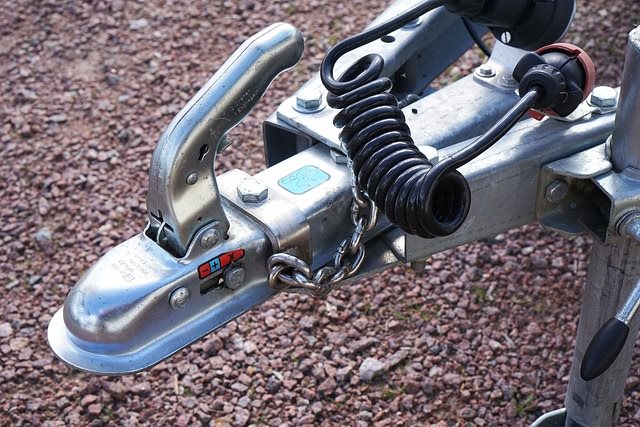Testing your trailer ground can help you know if the wiring connection performs properly for your safety on the road. A trailer tester can enable easier and more efficient trailer ground connection testing. Here are tips to help you know if your trailer ground is in good condition:
Testing Battery Voltage
A functional battery with high voltage will allow your trailer to start more easily. The vehicle’s engine can crank quickly and with less clicking noise when the battery is in proper condition. Before testing a trailer’s battery:
- Check for unevenly distributed charges on the battery’s electrode surfaces.
- Clear the surface charges, as they can prevent a voltmeter from showing accurate voltage.
- Turn off the trailer’s lights and ignition to get the correct battery’s resting voltage.
- Connect the voltmeter’s probes to the battery’s terminals and write down the reading.
A high battery voltage will signify a good trailer ground connection.
Checking Brake Performance
Trailer brakes can be electric or surge brakes. Electric trailer brakes use force from magnets, while surge brakes use pressure from a hydraulic piston. Testing these brakes can help identify a corroded brake wiring system, low voltage, and other problems that could damage the ground connection. This can enable timely trailer brake replacement or repair and prevent rear-end collisions. A multimeter can help you know if the brakes are supplied with adequate electrical power to stop a moving trailer. This trailer tester can also determine brake magnet amperage and resistance or shorts between the wires. When testing your trailer brakes, activate them and tighten the wiring connection to get accurate readings from a multimeter.
Testing Light
A secure and rust-free ground wiring can enable your trailer to produce bright lights due to the proper flow of electric current. Start your trailer light testing by removing corrosion or dirt on the grounding connection. Check if the ground wiring properly connects to the trailer’s frame and the battery’s negative terminal. Replace your trailer ground wiring if it is loose, damaged, or rusted beneath insulation. Your vehicle’s new wiring connectors should have tight seals to prevent moisture damage. Checking for a blown fuse or bulb can also be part of testing your trailer lights. A multimeter can help determine the fuse continuity by examining trailer wiring in the fuse panel. LED lights can prevent your trailer’s ground circuit from overworking, as they don’t take much electric current.
Checking Ignition Switch
A trailer’s ignition switch problems can result from a malfunctioning electrical system, which is part of the grounding connection. Test the ignition switch if your vehicle halts unexpectedly or the engine fails to start. A multimeter or test light can help determine the condition of your trailer ignition switch. Start your inspection by switching off the ignition switch and disconnecting the wiring at the module. When probing the white and red wire connections, the ignition key should be in the start and run positions. A low voltage on a test light or an infinite reading on a multimeter can signify ignition switch problems. Contact a professional auto repair expert to repair or replace the faulty switch or inspect the ground connection.
When buying a multimeter for your trailer’s testing, consider a digital one since it has an auto range. This makes the tester more accurate, precise, and faster. Knowing the current, amperage, or resistance range limits of trailer testing devices can help you make a proper purchase decision. Other considerations when buying a tester for your trailer include safety features, temperature detection, and input resistance.
Buy a Trailer Tester
A trailer tester can help you diagnose the vehicle’s ground connection by testing the lights, starter, or brakes. Testing these wiring components can allow for timely repair and make your trailer safe to drive. Visit an auto tool store for any trailer testing device.
Related Post:







